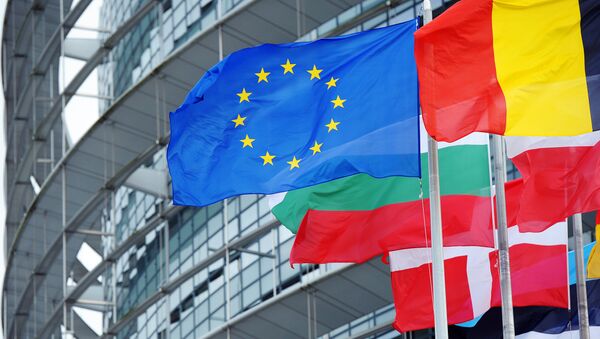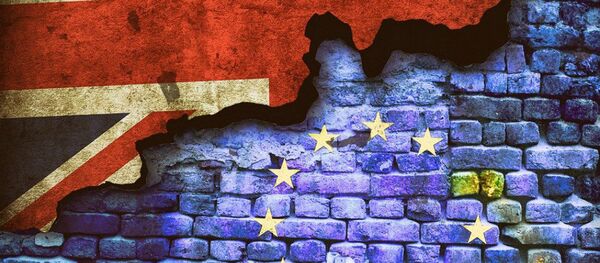The interview came after German Chancellor Angela Merkel's speech at the 2017 Munich Security Conference, in which she specifically said that the development of Europe, going forward, will depend on "elasticity" and different speeds of development.
"At the moment, it is difficult to say what the future of the European Union will be because there may be several scenarios," Tadeusz Iwinski said.
He recalled that in the wake of Brexit, former British Prime Minister Tony Blair initiated a campaign to reverse the majority decision, especially given that the vote to leave had passed with only a narrow margin.
"But this is only one aspect [of the problem], because without the UK, the EU will be very much weakened both economically and politically and Britain's withdrawal may ride roughshod over a whole array of countries which do not use the euro, including Sweden and Poland," he said.
Iwinski added that it would be irrelevant to only speak of the worst-case scenarios related to the EU, which he said is very unlikely to break up.
"The EU must respond to new challenges and, of course, the question arises whether the EU will return to the level of the European Economic Community (EEC), which [was] limited only by economic cooperation. I believe that it would be wrong and that it would be the loss of a few decades," he said.
Created by the Treaty of Rome in 1957, the EEC was a regional organization which aimed to bring about economic integration among its member states.
Upon the formation of the European Union in 1993, the EEC was incorporated and renamed as the European Community (EC). In 2009, the EC's institutions were absorbed into the EU's wider framework and the community ceased to exist.
"The problem is that there is a group of countries, including France, Germany, Italy and the three Benelux countries [Belgium, the Netherland and Luxembourg] which are in favor of close cooperation in all fields," Iwinski said.
He also did not rule out the possibility of creating a so-called two-speed Union, where different parts of the EU would integrate at different levels and at a different pace depending on the political situation in each individual member state.
"In fact, a two-speed Union may emerge, in what would be an unprofitable scenario. In this case, all those countries outside the Eurozone will be left behind when adopting a separate budget," he said.
In this regard, it is interesting to know how the EU's declaration concerning the event will look, he said.
"Actually, 1957 was the beginning of development of the present-day European Union. In this sense, it would be interesting to know about common priorities to be dealt with by all 28, or most likely 27, member states," he concluded.
Never miss a story again — sign up to our Telegram channel and we'll keep you up to speed!




